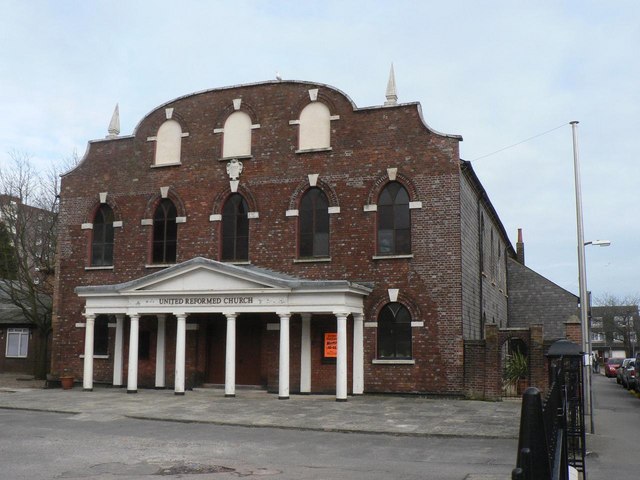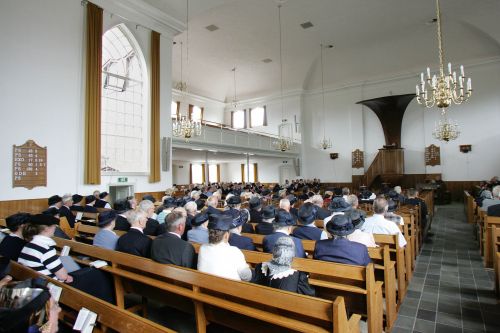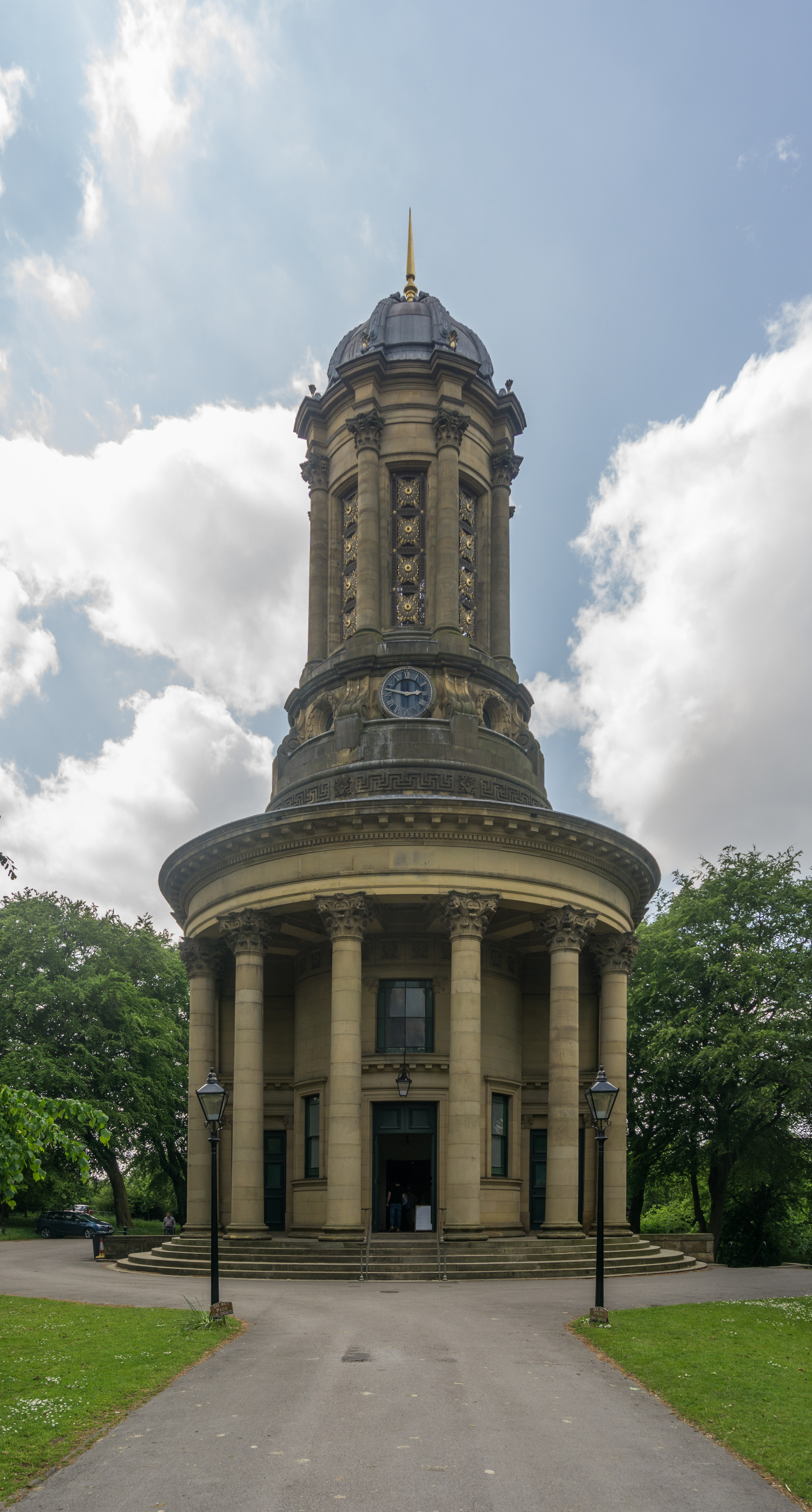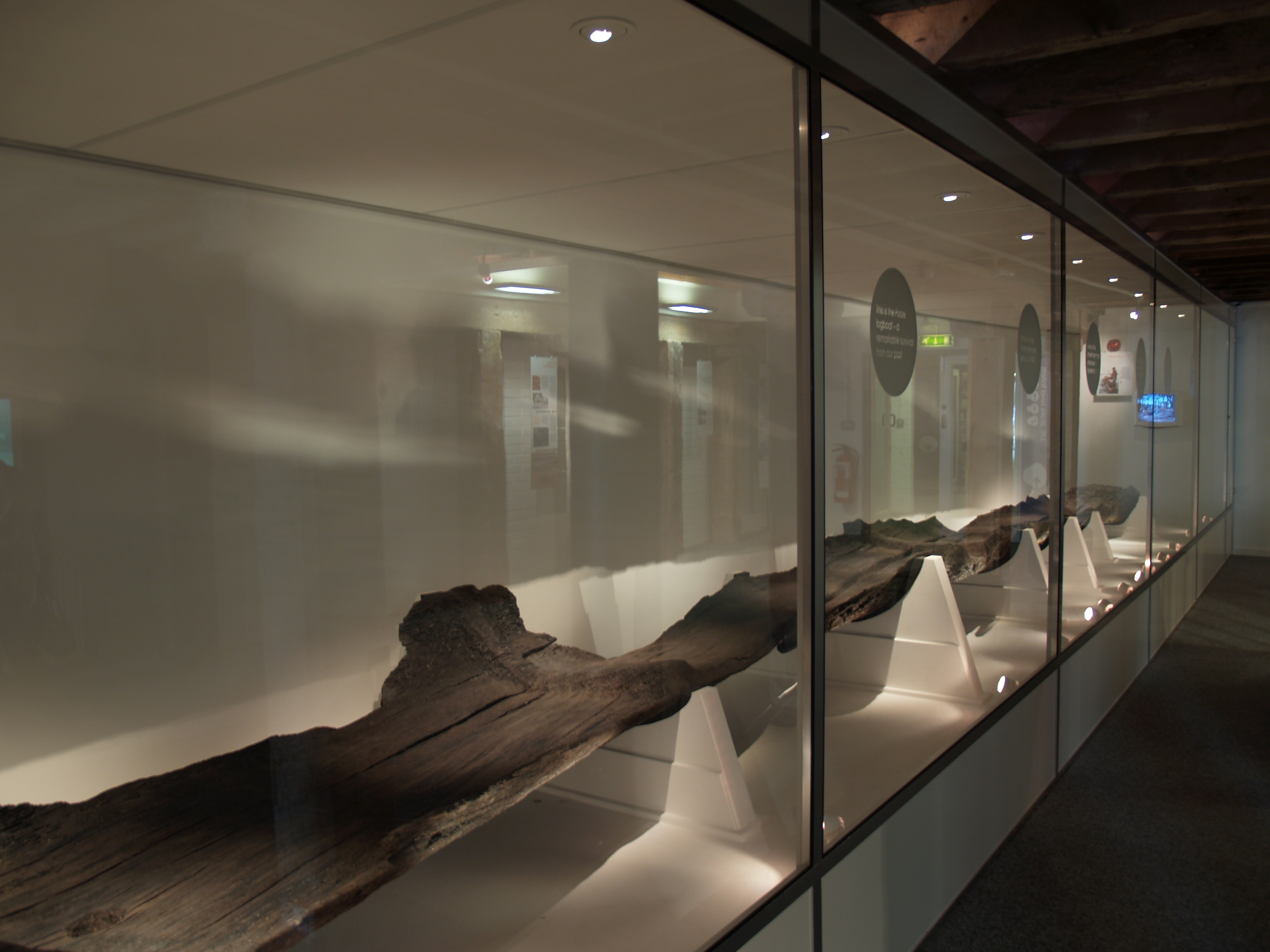|
Poole United Reformed Church
Skinner Street United Reformed Church is the oldest church in Poole, Dorset, England. The current building is the only eighteenth century church building in Poole, and is a Grade II* listed building. The church has a grave for Cyril Coles, one of the gunners in the first tank attack in 1916. The church is used as an adult learning centre. History The original chapel was built in 1662, making it Poole's oldest surviving church. In 1663, John Wesley's eponymously named grandfather became first minister of the chapel. The church moved to a new building in 1760, and the present Georgian building was built in 1777 for £1,440. It is the only eighteenth century church building in Poole The current vestry was added in 1814, and the chapel was extended in 1823, with the introduction of new galleries, at a cost of around £2,000. The roof was altered in 1886. In the nineteenth century, the church had a congregation of over 1,000 people, and the congregation was later split into other Un ... [...More Info...] [...Related Items...] OR: [Wikipedia] [Google] [Baidu] |
Church (congregation)
A church (or local church) is a religious organization or congregation that meets in a particular location. Many are formally organized, with constitutions and by-laws, maintain offices, are served by clergy or lay leaders, and, in nations where this is permissible, often seek non-profit corporate status. Local churches often relate with, affiliate with, or consider themselves to be constitutive parts of denominations, which are also called churches in many traditions. Depending on the tradition, these organizations may connect local churches to larger church traditions, ordain and defrock clergy, define terms of membership and exercise church discipline, and have organizations for cooperative ministry such as educational institutions and missionary societies. Non-denominational churches are not part of denominations, but may consider themselves part of larger church movements without institutional expression. The word ''church'' may also be used for other religious communit ... [...More Info...] [...Related Items...] OR: [Wikipedia] [Google] [Baidu] |
1777 Establishments In England
Events January–March * January 2 – American Revolutionary War – Battle of the Assunpink Creek: American general George Washington's army repulses a British attack by Lieutenant General Charles Cornwallis, in a second battle at Trenton, New Jersey. * January 3 – American Revolutionary War – Battle of Princeton: American general George Washington's army defeats British troops. * January 13 – Mission Santa Clara de Asís is founded in what becomes Santa Clara, California. * January 15 – Vermont declares its independence from New York, becoming the Vermont Republic, an independent country, a status it retains until it joins the United States as the 14th state in 1791. * January 21 – The Continental Congress approves a resolution "that an unauthentic copy, with names of the signers of the Declaration of independence, be sent to each of the United States. *February 5 – Under the 1st Constitution of Georgia, 8 counties ar ... [...More Info...] [...Related Items...] OR: [Wikipedia] [Google] [Baidu] |
Grade II* Listed Churches In Dorset
Grade most commonly refers to: * Grade (education), a measurement of a student's performance * Grade, the number of the year a student has reached in a given educational stage * Grade (slope), the steepness of a slope Grade or grading may also refer to: Music * Grade (music), a formally assessed level of profiency in a musical instrument * Grade (band), punk rock band * Grades (producer), British electronic dance music producer and DJ Science and technology Biology and medicine * Grading (tumors), a measure of the aggressiveness of a tumor in medicine * The Grading of Recommendations Assessment, Development and Evaluation (GRADE) approach * Evolutionary grade, a paraphyletic group of organisms Geology * Graded bedding, a description of the variation in grain size through a bed in a sedimentary rock * Metamorphic grade, an indicatation of the degree of metamorphism of rocks * Ore grade, a measure that describes the concentration of a valuable natural material in the surroun ... [...More Info...] [...Related Items...] OR: [Wikipedia] [Google] [Baidu] |
Philip Henry Gosse
Philip Henry Gosse FRS (; 6 April 1810 – 23 August 1888), known to his friends as Henry, was an English naturalist and populariser of natural science, an early improver of the seawater aquarium, and a painstaking innovator in the study of marine biology. Gosse created and stocked the first public aquarium at the London Zoo in 1853, and coined the term "aquarium" when he published the first manual, ''The Aquarium: An Unveiling of the Wonders of the Deep Sea'', in 1854. His work was the catalyst for an aquarium craze in early Victorian England.Katherine C. Grier (2008) ''Pets in America: A History''. p. 53. University of North Carolina Press Gosse was also the author of '' Omphalos'', an attempt to reconcile the geological ages presupposed by Charles Lyell with the biblical account of creation. After his death, Gosse was portrayed as an overbearing father of uncompromising religious views in ''Father and Son'' (1907), a memoir written by his son, Edmund Gosse, a poet and critic ... [...More Info...] [...Related Items...] OR: [Wikipedia] [Google] [Baidu] |
Blue Plaque
A blue plaque is a permanent sign installed in a public place in the United Kingdom and elsewhere to commemorate a link between that location and a famous person, event, or former building on the site, serving as a historical marker. The term is used in the United Kingdom in two different senses. It may be used narrowly and specifically to refer to the "official" scheme administered by English Heritage, and currently restricted to sites within Greater London; or it may be used less formally to encompass a number of similar schemes administered by organisations throughout the UK. The plaques erected are made in a variety of designs, shapes, materials and colours: some are blue, others are not. However, the term "blue plaque" is often used informally to encompass all such schemes. The "official" scheme traces its origins to that launched in 1866 in London, on the initiative of the politician William Ewart, to mark the homes and workplaces of famous people. It has been administe ... [...More Info...] [...Related Items...] OR: [Wikipedia] [Google] [Baidu] |
ITV News
ITV News is the branding of news programmes on the British television network ITV. ITV has a long tradition of television news. Independent Television News (ITN) was founded to provide news bulletins for the network in 1955, and has since continued to produce all news programmes on ITV. The channel's news coverage has won awards from the Royal Television Society, Emmy Awards and BAFTAs. Between 2004 and 2008, the ''ITV Evening News'' held the title of "RTS News Programme of the Year". The flagship ''ITV News at Ten'' has won numerous BAFTA awards, and also being named "RTS News Programme of the Year" in 2011, 2015, 2021 and 2022. ITV News has the second-largest television news audience in the United Kingdom, second only to BBC News (and followed by other broadcasters such as Sky News, Channel 4 News and Channel 5 News). However, its £43 million annual news budget is dwarfed by that of the publicly funded BBC, which spends £89.5 million annually on news-gathering, ... [...More Info...] [...Related Items...] OR: [Wikipedia] [Google] [Baidu] |
Historic England
Historic England (officially the Historic Buildings and Monuments Commission for England) is an executive non-departmental public body of the British Government sponsored by the Department for Digital, Culture, Media and Sport. It is tasked with protecting the historic environment of England by preserving and listing historic buildings, scheduling ancient monuments, registering historic Parks and Gardens and by advising central and local government. The body was officially created by the National Heritage Act 1983, and operated from April 1984 to April 2015 under the name of English Heritage. In 2015, following the changes to English Heritage's structure that moved the protection of the National Heritage Collection into the voluntary sector in the English Heritage Trust, the body that remained was rebranded as Historic England. The body also inherited the Historic England Archive from the old English Heritage, and projects linked to the archive such as Britain from Above, w ... [...More Info...] [...Related Items...] OR: [Wikipedia] [Google] [Baidu] |
Newfoundland
Newfoundland and Labrador (; french: Terre-Neuve-et-Labrador; frequently abbreviated as NL) is the easternmost province of Canada, in the country's Atlantic region. The province comprises the island of Newfoundland and the continental region of Labrador, having a total size of 405,212 square kilometres (156,500 sq mi). In 2021, the population of Newfoundland and Labrador was estimated to be 521,758. The island of Newfoundland (and its smaller neighbouring islands) is home to around 94 per cent of the province's population, with more than half residing in the Avalon Peninsula. Labrador borders the province of Quebec, and the French overseas collectivity of Saint Pierre and Miquelon lies about 20 km west of the Burin Peninsula. According to the 2016 census, 97.0 per cent of residents reported English as their native language, making Newfoundland and Labrador Canada's most linguistically homogeneous province. A majority of the population is descended from English and Irish s ... [...More Info...] [...Related Items...] OR: [Wikipedia] [Google] [Baidu] |
United Reformed Church
The United Reformed Church (URC) is a Protestant Christian church in the United Kingdom. As of 2022 it has approximately 40,000 members in 1,284 congregations with 334 stipendiary ministers. Origins and history The United Reformed Church resulted from the 1972 union of the Presbyterian Church of England and the Congregational Church in England and Wales. In introducing the United Reformed Church Bill in the House of Commons on 21 June 1972, Alexander Lyon called it "one of the most historic measures in the history of the Christian churches in this country". About a quarter of English Congregational churches chose not to join the new denomination; in England, there are three main groups of continuing Congregationalists: the Congregational Federation, the Evangelical Fellowship of Congregational Churches and the Fellowship of Independent Evangelical Churches. The URC subsequently united with the Re-formed Association of Churches of Christ in 1981 and the Congregational Union of S ... [...More Info...] [...Related Items...] OR: [Wikipedia] [Google] [Baidu] |
Vestry
A vestry was a committee for the local secular and ecclesiastical government for a parish in England, Wales and some English colonies which originally met in the vestry or sacristy of the parish church, and consequently became known colloquially as the "vestry". Overview For many centuries, in the absence of any other authority (which there would be in an incorporated city or town), the vestries were the sole ''de facto'' local government in most of the country, and presided over local, communal fundraising and expenditure until the mid or late 19th century using local established Church chairmanship. They were concerned for the spiritual but also the temporal as well as physical welfare of parishioners and its parish amenities, collecting local rates or taxes and taking responsibility for numerous functions such as the care of the poor, the maintaining of roads, and law enforcement, etc. More punitive matters were dealt with by the manorial court and hundred court, and latter ... [...More Info...] [...Related Items...] OR: [Wikipedia] [Google] [Baidu] |
Poole
Poole () is a large coastal town and seaport in Dorset, on the south coast of England. The town is east of Dorchester and adjoins Bournemouth to the east. Since 1 April 2019, the local authority is Bournemouth, Christchurch and Poole Council which is a unitary authority. Poole had an estimated population of 151,500 (mid-2016 census estimates) making it the second-largest town in the ceremonial county of Dorset. Together with Bournemouth and Christchurch, the conurbation has a total population of nearly 400,000. Human settlement in the area dates back to before the Iron Age. The earliest recorded use of the town's name was in the 12th century when the town began to emerge as an important port, prospering with the introduction of the wool trade. Later, the town had important trade links with North America and, at its peak during the 18th century, it was one of the busiest ports in Britain. In the Second World War, Poole was one of the main departing points for the Normandy l ... [...More Info...] [...Related Items...] OR: [Wikipedia] [Google] [Baidu] |



.jpg)




